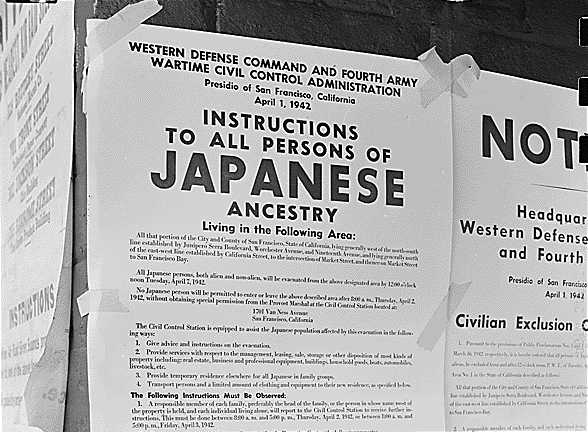In the South, the conversation around race is almost exclusively framed in terms of Blacks and Whites. Given the history here, it is understandable why that might be the case. In no way would I ever want to minimize the discrimination that African-Americans have endured (and continue to endure) here in the Deep South. Little Rock in particular has an ugly history of which most of the country is probably aware.

Yet there is another ugly episode in United States (and Arkansas) history that often gets overlooked in conversations centered on racism. From 1942 to 1946, Japanese Relocation Centers (Internment Camps) were used to “house” over 100,000 Japanese-Americans, most of whom were American citizens. These internment camps were located in various states west of the Mississippi.
Two such Relocation Centers, Jerome and Rohwer, were located in southeast Arkansas.
The war-time status is sometimes cited as justification for the necessity of the internment. However, as always seems to be the case with racism, the underlying issues of power and money were just below the surface. An investigation as recent as 2011, uncovered suppressed evidence that would have helped repudiate the idea that Japanese-Americans were a threat to national security. Something most everyone already knew to be untrue.
It wasn’t until 1988, during the Reagan administration, that a formal apology was issued by the United States government.
I’m sort of a novice when it comes to understanding the reasons why Asian-American discrimination isn’t as widely recognized in our country. My guess is it has something to do with the perceived “success” of Asian-Americans living here. More likely it has something to do with Asians being viewed as a lesser threat to the majority way of life. If and when the majority group does feel threatened, then predictable racist responses can be expected.
Regardless of how well-intentioned our efforts are, as long as the conversation about racial inequality centers exclusively on the white-black divide, then other races are marginalized. It is sad to think that even in our attempts to address racial inequality, we can unknowingly perpetuate it.
Now is the time to rise from the dark and desolate valley of segregation to the sunlit path of racial justice. Now is the time to lift our nation from the quick sands of racial injustice to the solid rock of brotherhood. Now is the time to make justice a reality for all of God’s children.



